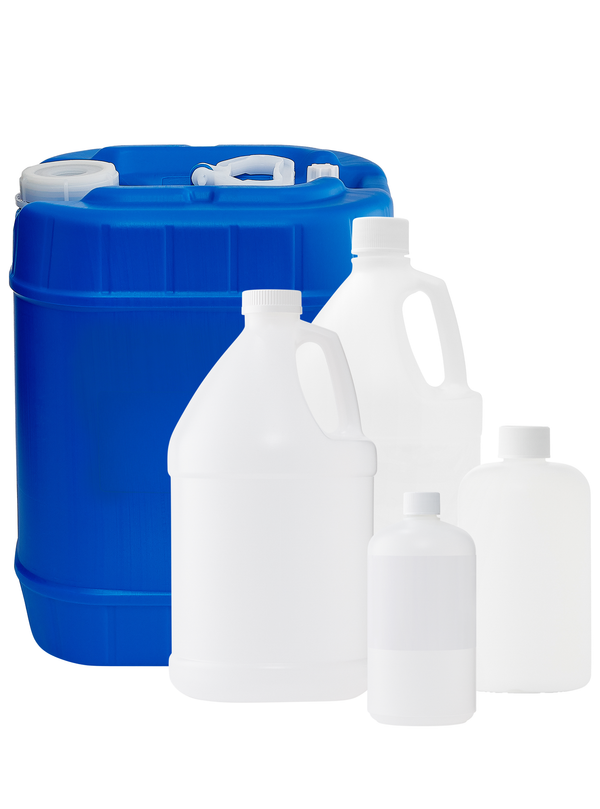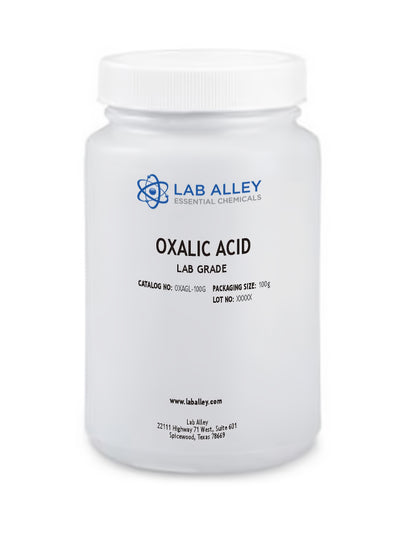
Business Support
Oxalic Acid Crystals ACS Grade
For Cleaning, Bleaching, And Rust Removal
For questions regarding lead time, please contact a member of our Customer Care Team at customercare@laballey.com
Business Support
Description
About Oxalic Acid Crystals ACS Grade
Oxalic Acid Crystals Lab Grade is a crystalline white solid at room temperature that forms a colorless solution with water. It is a naturally occurring chemical in the body, and is found extensively in fruits and vegetables, especially leafy greens.
Oxalic Acid is used in high school and college settings for analytical work such as titrations, and in industrial settings it is used for cleaning or bleaching, especially for the removal of rust (iron complexing agent). Its utility in rust removal agents is due to its forming a stable, water-soluble salt with ferric iron, ferrioxalate ion. Oxalic acid is used for extractive metallurgy. It is an important reagent in lanthanide chemistry
The ACS Grade is generally equivalent to the reagent grade and is acceptable for use in analytical applications and research laboratories.
COMMON USES AND APPLICATIONS
- Cleaning
- Rust removal
- Pesticide
- Wood pulp bleaching
INDUSTRIES
- Electronics and Semi-conductor
- Beekeeping
- Paper
PRODUCT INFORMATION
Customer Reviews and Q&A
Safety and Shipping
DOT: Corrosive solid, acidic, organic, n.o.s. (oxalic acid), 8, UN3261, PG III
Please contact us to request a Safety Data Sheet (SDS) and Certificate of Analysis (COA) for Oxalic Acid Crystal Lab.
Business Support
Built for Business.
At Lab Alley, we simplify procurement with custom quotes, credit applications, tax exemptions, and fulfillment support, ensuring on-budget, on-time delivery - your success is our priority.
Apply for Credit
A Lab Alley credit account streamlines purchasing for your business. Our Customer Success Team is available to help you through every step of the process.
Request a Custom Quote
Get a fast, customized quote tailored to your specific needs. Our team ensures accurate pricing and availability to help streamline your purchasing process.

Additional Business Resources
Lab Alley provides access to essential certifications, documents, and other resources to support your business.

Create a Lab Alley Account

RECEIVE exclusive offers, promotions, and discounts on chemicals.

Always have the product you need, when you need it with our AUTOSHIP program.



